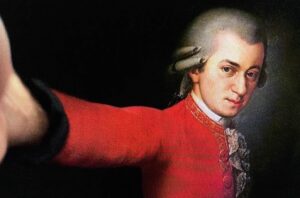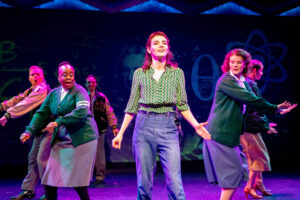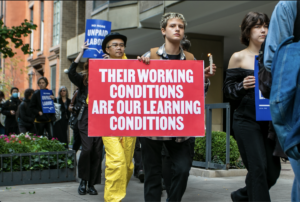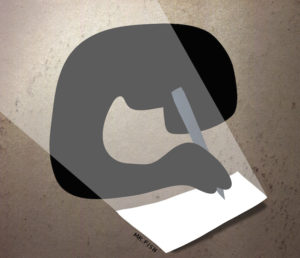We Must Learn Again
The author takes aim at the shortcomings of the contemporary American educational system, laments the current state of arts education, and wonders what exactly schools are preparing younger generations to do -- and become.We must learn them again: “the problems of the human heart in conflict with itself” (Faulkner, 1950). The education we provide children and young people today sadly neglects this individual conflict of “love and honor and pity and pride and compassion and sacrifice.” Instead, we offer mostly conflicts between the individual and the standardized systems — namely, test scores as the end-all of learning — or we present the individual competing with others for economic gain, for the privilege of consuming more than one’s neighbor. Or we show the individual simply pursuing paltry goals of modest comfort. Of course, there is nothing wrong or evil about passing tests and acquiring material goods. It’s just that they bring so little lasting pleasure and that they distract the pursuer from any real joy.
Many schools, unfortunately, offer little more than such minimal pursuits, and many have removed from the curricula those areas in which the traditions and dramas of the human heart take place. Schools ideally would be the place where children and youths confront tragedy as presented by writers from Sophocles, Aeschylus and Shakespeare to Ibsen, O’Neil, Williams and Miller. Yet we are processing through our public schools hordes of students who have never heard of these writers, much less read, witnessed and discussed the fundamental human issues with which these playwrights grapple. We graduate generations of students who have not labored with the dilemmas Sophocles dramatizes in “Antigone,” as the heroine willfully defies the state in her loyalty to what she perceives as a higher authority. Nor have they read or experienced Aeschylus’ tragic sense of life in which wisdom comes only through suffering.
Because of the combination of our obsession with testing, our budget cuts and our inadequate funding of public education, the arts are given short shrift. Not only are theater programs decimated, but music, visual arts and dance are equally diluted or deleted. Latent talents remain latent because they were never exposed to areas where these talents could manifest themselves and be nurtured. The drama program at one inner-city school in which I am consulting consists of one teacher offering drama as one of the five classes (four others in English) he teaches. The school has a lovely dance studio but no dance teacher. How much talent, I wonder sadly, just goes by undiscovered, undeveloped?
In addition, this school and others across the nation offer no art history or painting classes, and so we graduate each year seniors who have no conception of the emotional truths of experience rendered by a Caravaggio, the fantastic allegories of a Hieronymus Bosch or the passionate expressionism of a Dürer or a Kokoschka. These students are, therefore, oblivious to the joys that might have enriched their lives now and for the rest of their days had they studied the wide expanse of the masters or tried their own hand at creation. Again, what talents are we leaving behind?
So, by default, we provide students with a meager curriculum which overemphasizes test taking, which neglects the essential and perennial issues of being a human being and which fails to give students a means of expressing their life’s issues in any meaningful way. The results: They drop out or they graduate bored, indifferent to values other than those trumpeted by a consumerist culture and unaware of talents many of them may possess. And we call this process “education.”
Your support matters…Independent journalism is under threat and overshadowed by heavily funded mainstream media.
You can help level the playing field. Become a member.
Your tax-deductible contribution keeps us digging beneath the headlines to give you thought-provoking, investigative reporting and analysis that unearths what's really happening- without compromise.
Give today to support our courageous, independent journalists.








You need to be a supporter to comment.
There are currently no responses to this article.
Be the first to respond.